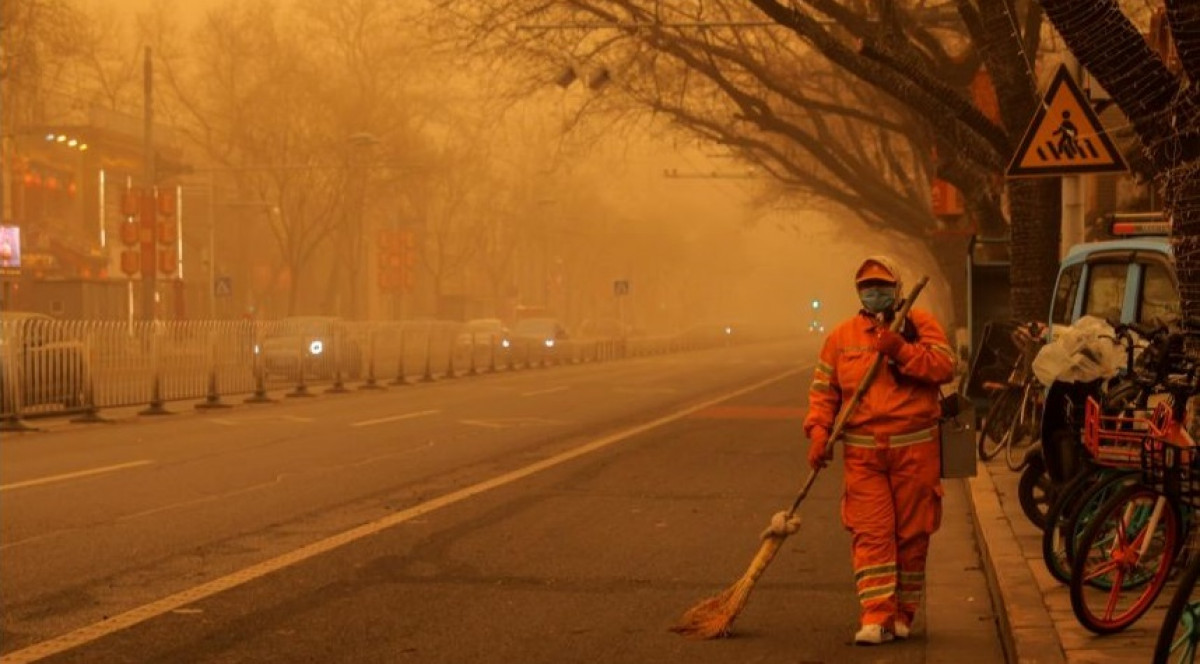Asia
Shanghai suffering from severe pollution following Northern Sandstorms
The city’s air was classified as “severely polluted.

The city of Shanghai was hit by the worst pollution on record on Tuesday as the air in the country’s commercial centre filled with dust from northern China. It has been almost a week of this heavy dust covering Shanghai, halting all the work on construction, delaying flights and bringing visibility down to a few meters. The section of the Yangtse river was closed to shipping due to the same and congestion is being caused on the roads due to the shutting down of almost all express-ways.
The city’s air was classified as “severely polluted the worst level of a 6-grade scale with an air quality index surging to the upper limit of 500 as if midday According to Shanghai environmental monitoring centre. The primary pollutant is PM10 particles that can be inhaled - the centre said. It warned children and the elderly to stay indoors.
The two sand storms suffered by Beijing in March about 1000 km to the north from Shanghai are also sending air pollution readings off the chart. Expected rain may help ease the pollution in Shanghai from Tuesday evening, according to a post on the municipal government’s WeChat platform.

Image- IQ Air
A recent study found that a 10 µg/m³ increase in particulate matter (PM10) reduced life expectancy in China by 0.64 years and that PM2.5 accounted for 1.7 million of all-cause deaths in China in 2015. A recent study, however, estimated that the number of deaths caused by exposure to high levels of PM2.5 has decreased by 12.6 percent from 1.2 million in 2013 to 1.05 million in 2017.
In the first six months of 2020, it was reported that around 49 thousand people died from diseases related to air pollution.
The report from the Centre for Research on Energy and Clean Air (CREA) revealed that Shanghai has worse concentrations of the pollutant PM2.5, sulphur dioxide (SO2) and nitrogen dioxide (NO2), than Beijing. On a global scale, CREA estimates that damage to health attributed to air pollution cost between 0.4 and 6 per cent of the annual GDP in the world’s leading cities.
Despite the harms of PM 2.5, studies have found that wearing masks prevents effects on blood pressure and heart rate variability. Placebo-controlled studies of air purifiers have found that reducing particulate in the home prevents harm to blood pressure, inflammation, and immune response-even among young, healthy twenty-year-olds.





